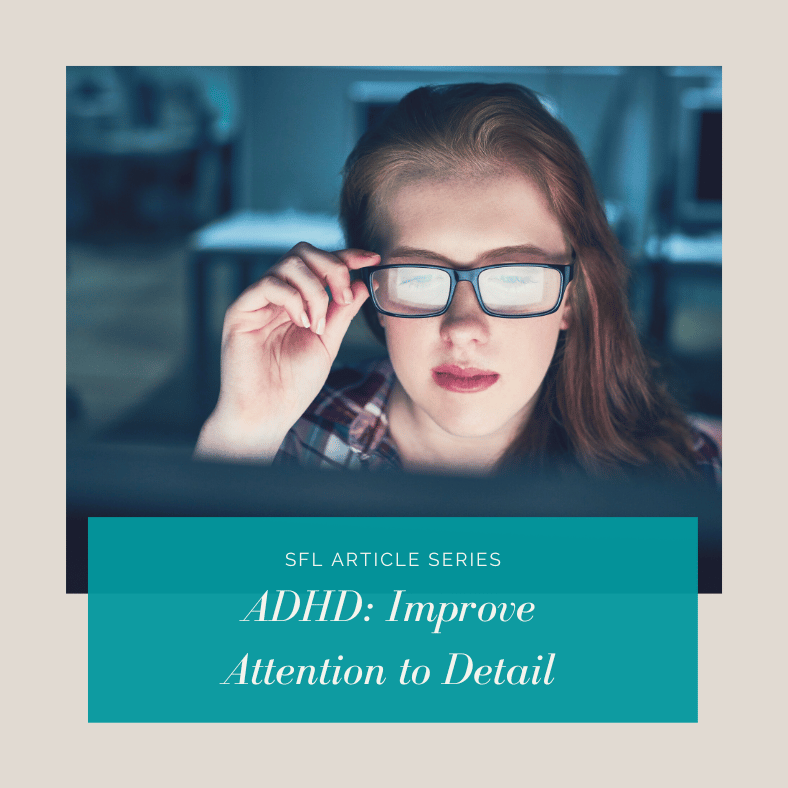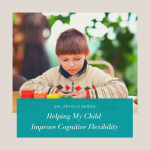No products in the cart.

As a career educator, I cannot tell you how often I have excitedly begun grading a solid student’s math test only to be deflated by the end because the student was upended by ‘careless’ mistakes. Or the countless times I’ve graded a final essay and come across spelling, grammar, and punctuation errors that the student wouldn’t typically make if they weren’t in a rush.
It is common for all students to make mistakes in their academic journey from time to time. Even as their teacher, I prompted my students to check my work on the board for errors as I worked out problems. ADHD students, however, are particularly prone to having mistakes show up in their work because they may find it extremely difficult to hone in on the exact details of an assignment or question.
What causes poor attention to detail?
While science has not fully discovered the cause for this, brain scans tend to show that people with ADHD may have chemical or structural differences in their brains. Studies show that the brain regions involved in regulating attention, are less active in people with ADHD than their non-ADHD counterparts.
How to improve your attention to detail?
While certain medications can certainly improve someone with ADHD‘s capacity to pay attention to detail, there are also some practical tips that anyone can put to use:
- Break instructions and tasks into smaller steps: Separate the components of multi-step directions into manageable chunks. Complete each step one at a time.
- See the trees for the forest……THEN see the forest for the trees: Allow the details of each step of a problem to slowly sink in and provide clarity to your view of the big picture of a question or an assignment.
- Do a Double-Take: Sure that you’ve fulfilled every detail of that project? Go back to double and triple-check your rubric to be certain you’ve completed everything required by your teacher.
- Practice Active Listening: Pay close attention to the details by making eye contact with the speaker, asking clarification questions, paraphrasing what you’ve heard, and listening to understand rather than respond.
- Remove Distractions: Cluttered House, Cluttered Mind. Keeping your area neat, organized, and free of tempting activities keeps your mind from wandering to things around you that can draw your attention away from the task at hand.
- Create Detailed Checklists: Don’t rely on your brain to remember or have an outline of things that need to be completed. Take the time to author to-do lists that keep you on track for meeting your deadlines and achieving your goals.
Having ADHD does not mean you have to be afraid of missing the details in the fine print, forgetting the steps of long division, or never completing an assignment. Take a thoughtful, hands-on approach to your responsibilities and build the habits that will help you increase your attention to the details.
Written by Maleek Mitchell, M.S., M.A. Education
Related Articles
Looking for Academic Support and other Educational Services?
You can schedule a free initial consultation to learn more about our services. We will listen to your concerns, answer any questions, learn about the student’s needs, and help guide you through our new student intake process.






